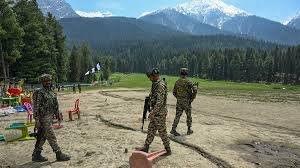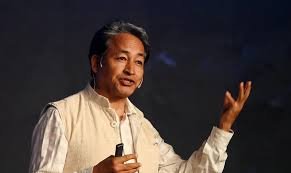Pahalgam, July 22, 2025 : Three months after the horrific terror attack in Pahalgam that claimed 26 lives — 25 tourists and one local pony handler — the main perpetrators remain at large, fueling public outrage and deepening concerns over persistent security failures in the region.
Though the National Investigation Agency (NIA) has arrested two individuals for providing shelter and supplies to the attackers, the prime suspects — three heavily armed Pakistani terrorists affiliated with Lashkar-e-Taiba’s proxy group, The Resistance Front (TRF) — continue to evade capture.
In a rare acknowledgment, Lt. Governor Manoj Sinha, who is set to complete his five-year term next month, admitted to a “security failure” in the handling of the April 22 incident. His statement drew both appreciation and criticism, with Chief Minister Omar Abdullah responding:
“An admission of failure must be followed by action. Heads must roll. People deserve answers.”
The attack was reportedly executed by a TRF sub-unit dubbed the “Falcon Squad,” whose operatives infiltrated the region wearing military fatigues and using advanced weaponry and communication gear, including helmet-mounted cameras. Officials suspect the operation was masterminded by Saifullah Kasuri alias Khalid, a top LeT commander and aide to Hafiz Saeed.
Investigations reveal that the attackers received logistical support from Parvaiz Ahmad Jothar and Bashir Ahmad Jothar, both residents of Pahalgam, who sheltered them in a remote hut prior to the attack. According to NIA, the victims were selectively targeted based on their religious identity, underscoring the premeditated and gruesome nature of the assault.
Sources within the security establishment admitted that actionable intelligence was misinterpreted and deployed 90 km away from the actual target area, resulting in a critical security gap.
The continued absence of arrests of the actual attackers — and the gravity of the planning involved — has ignited calls for fixing responsibility at the highest levels. CM Abdullah’s strong remarks reflect growing public anger and the likelihood that this issue will dominate public discourse in the weeks ahead.
Security experts believe this incident could mark a dangerous shift in terrorist strategy — from targeting officials to civilians — aiming to disrupt tourism, provoke fear, and stoke communal tensions.
As Jammu & Kashmir grapples with this evolving threat, questions remain: Who failed? And who will be held accountable?



















